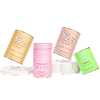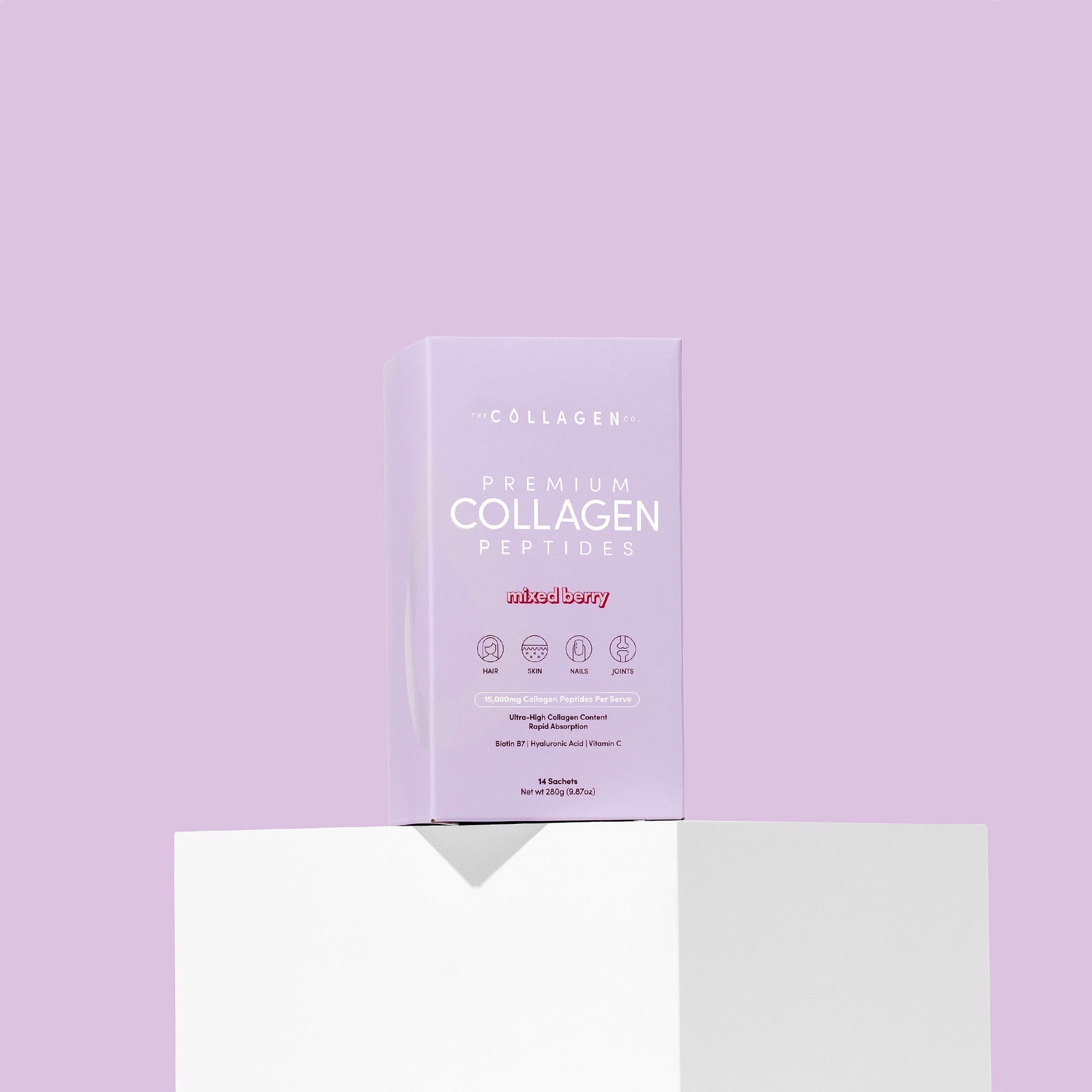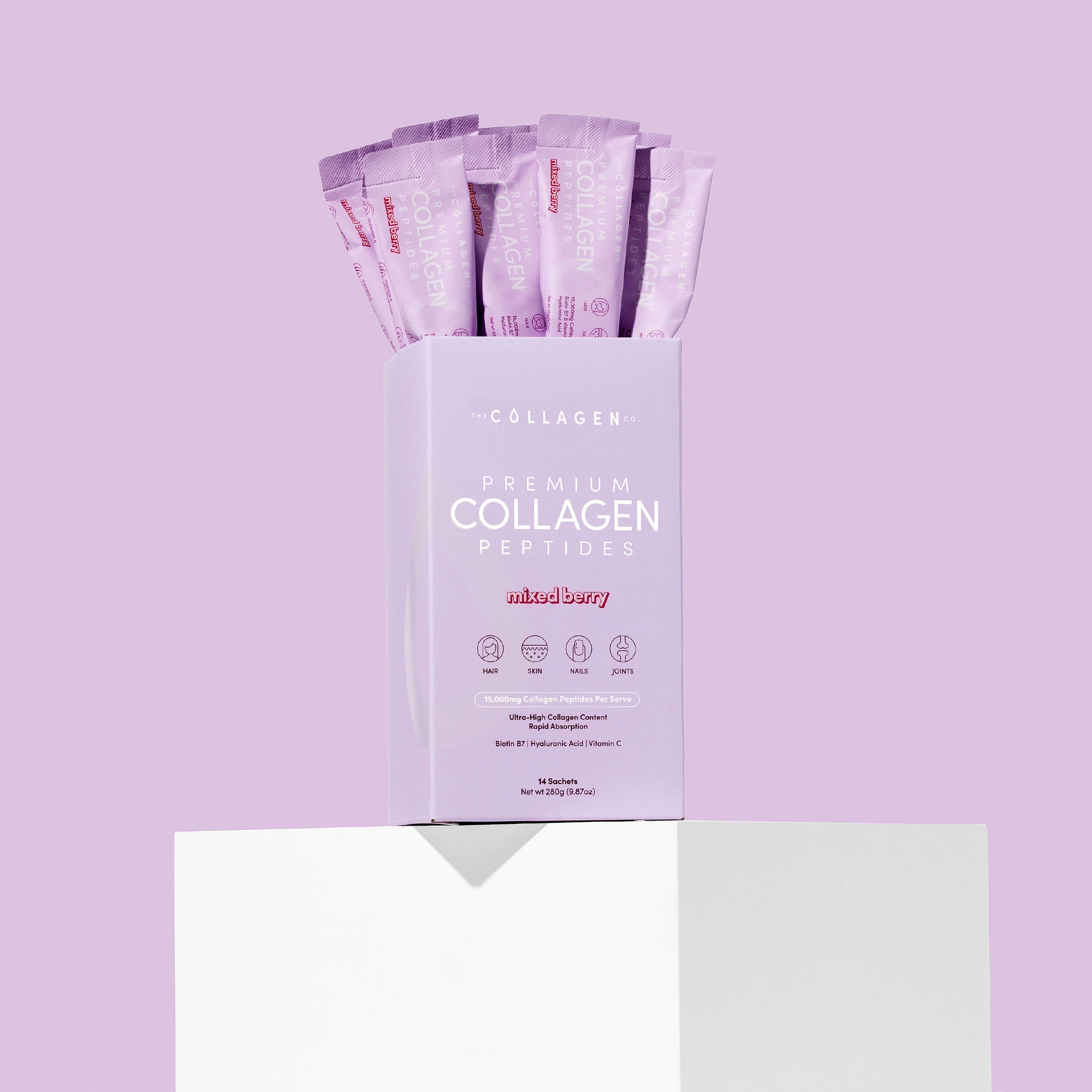Does Collagen Help Acne Scars?
Posted 19th September 2022

Red, painful to touch, and ready to burst at the most inopportune moment.
Active breakouts are frustrating to deal with. More maddeningly, they don't even leave peacefully, often traumatizing you with these types of scars: ice pick, rolling, boxcar, and hypertrophic.
Even if you don't know what any of these scars are (consider yourself one of the lucky ones!), you're likely familiar with those pesky dark spots—post-inflammatory hyperpigmentation that shows up in the wake of pimples, bumps, and cystic breakouts.
There’s no denying it. Big or small, noticeable from a distance or not, these little dents, nicks, and dark spots can hurt your self-esteem and quality of life.
So, is there anything you could do to get rid of them? Collagen peptides, maybe? Let’s see.
What are the benefits of taking collagen for acne?
Picture this: you wake up to zero scars on your face one day. Yay—it's a massive win. But wait … what’s that on your chin? Is that a new cluster of pimples ready to revolt? (Yes.)
Sorry, that was majorly depressing, but the point is that it’s pointless to target acne scars without first addressing their root cause: blackheads, whiteheads, nodules, and other types of acne. As for how, well, the header is a dead giveaway.
As it turns out, collagen supplements could help combat acne through two mechanisms.
Before diving into that, though, you should first know how acne develops. Surprisingly, acne—no matter what type of skin you have—results from a simple, universal formula.
The skin produces sebum or oil; if the substance is too thick and sticky, it can combine with dead skin cells in the pores and create a plug (what you'd know of as a blackhead or whitehead). This plug can then mix with bacteria and get inflamed, making a red and tender pimple.
Now, back to how hydrolyzed collagen peptides help acne.
#1: Enhances skin hydration
Your skin’s collagen levels fall as you get older.
Because hyaluronic acid is bound to collagen on one side and water molecules to the other in your skin, the natural ageing process could “dry out” your skin. As a result, your skin may overproduce oil to compensate for the lack of moisture, paving the way to acne.
Hydrolyzed collagen peptides could help sebum overproduction (and, as a result, acne) by boosting your skin's collagen levels.
This 2018 study, for instance, found that participants who took collagen supplements reported seven times higher moisture levels in the skin than those who did not.
#2: Exerts anti-inflammatory effects
Acne is essentially the consequence of inflammation. So isn't it good that collagen contains glycine, an amino acid with proven anti-inflammatory effects, then? Ultimately, collagen supplementation could stop acne in its tracks by preventing inflammation.
How does collagen help break down acne scars?
Great—we now know that collagen could stave off “new” acne.
What about existing scars? Unfortunately, as with the case of stretch marks, if you’ve had those acne scars for a while, collagen supplementation will not magically erase them.
For old, deep-set acne scars, dermatological treatments like soft tissue fillers, laser resurfacing, and chemical peels remain the most effective treatment.
That said, hydrolyzed collagen could help heal just-forming scars (i.e., from a recent breakout) by transporting collagen peptides to the wound site, encouraging the skin’s return to a healthy-looking state.
How much collagen a day should I take to reduce skin breakouts?
Here comes the most crucial question: how much collagen peptides should you take daily to reduce skin breakouts?
While research suggests that you'd see improvements in skin hydration with anywhere between 2.5 to 10 grams per day, we wouldn't recommend you start with such low dosages. It'll take you at least six to eight weeks to see any improvements in your skin (by then, you may already be struggling with the third wave of acne!)
Just so you know, our customers have seen results at breakneck speeds by taking 15 grams of high-quality, hydrolyzed collagen peptides daily: Becky's (moderate) acne cleared up within four weeks, and Bonnie's (mild acne) within two weeks!
Takeaway
Although collagen supplements cannot technically “break down” or “erase” old, deep-set acne scars, it could prevent the development of new acne and enhance the healing of more recent scars—significantly improving the appearance of your skin.
If that sounds good, start shopping to feel confident in your skin again (like Becky and Bonnie did) here.










































